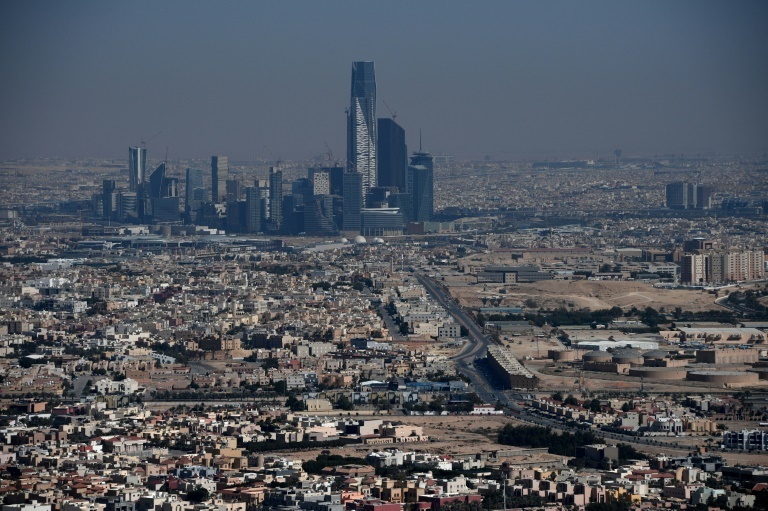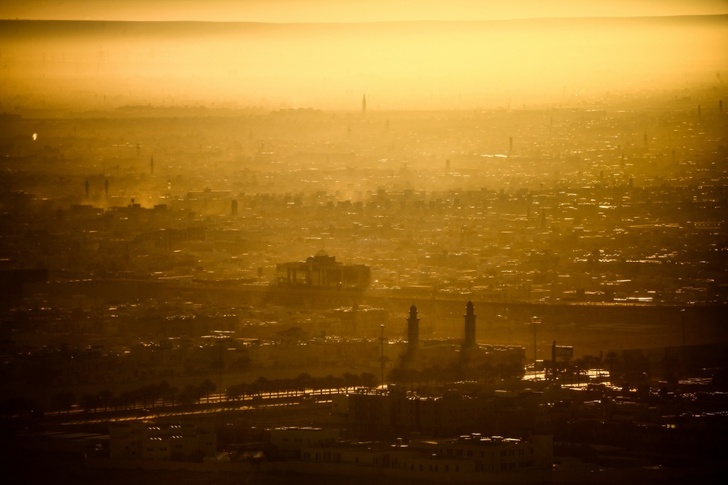Saudi Arabia announced Sunday the creation of a new national airline, part of a plan to turn Riyadh into a global aviation hub rivalling regional leaders like Dubai and Doha.
Riyadh Air "aims to launch flights to more than 100 destinations around the world by 2030," the official Saudi Press Agency (SPA) reported.
The Gulf kingdom is pursuing ambitious aviation goals as part of Crown Prince Mohammed bin Salman's wide-ranging "Vision 2030" reform agenda, including more than tripling annual traffic to 330 million passengers by the end of the decade.
It also wants to move up to five million tonnes of cargo each year.
Last November officials announced plans for a new airport in the capital Riyadh -- spanning 57 square kilometres (22 square miles) -- that is set to accommodate 120 million travellers per year by 2030 and 185 million travellers by 2050.
The capacity of the existing Riyadh airport is around 35 million travellers.
The new airline is the latest in "a huge package of projects" that will "consolidate our country's position as an international hub for aviation and a global logistics centre", Saudi transport minister Saleh Al-Jasser said on Twitter.
Tony Douglas, former head of Abu Dhabi-based Etihad Airways, has been appointed CEO, SPA said.
- A new hub -
Sunday's announcement said Riyadh Air would operate a "fleet of advanced aircraft", but did not specify how big the fleet would be or from where it would be sourced.

The kingdom's busiest international airport is currently in the Red Sea coastal city of Jeddah, where flag carrier Saudia is based.
Known as the "Gateway to Mecca", the city welcomes millions of Muslims performing the hajj and umrah pilgrimages each year.
Officials have in recent years tried to position Riyadh, in central Saudi Arabia, as a rival to business hub Dubai.
"They want to make it a cosmopolitan city competing with the likes of Dubai and the likes of Doha from an investment perspective, from a tourism perspective, from an infrastructure perspective," Khalil Lamrabet, former CEO of the Saudi Air Connectivity Program, told AFP last November.
"And to do that you need the country to develop a dedicated hub in Riyadh."
The capital currently has around eight million people, but officials have said they want the population to grow to 15-20 million by 2030.
Industry analysts have questioned whether Saudi Arabia's goals are feasible, with some describing the regional market as already "saturated".
Yet the Saudi strategy hinges partly on tapping the domestic market in a country with a population of around 35 million, which officials see as a major advantage for national carriers over rivals Emirates and Qatar Airways.
"There is sizable outbound traffic out of the kingdom as well as sizable domestic traffic," Lamrabet said.
"The reliance on transfer (flights) will not be as high as the other hubs in the region."
rcb/pjm
© Agence France-Presse
Your content is great. However, if any of the content contained herein violates any rights of yours, including those of copyright, please contact us immediately by e-mail at media[@]kissrpr.com.
Source: Story.KISSPR.com

